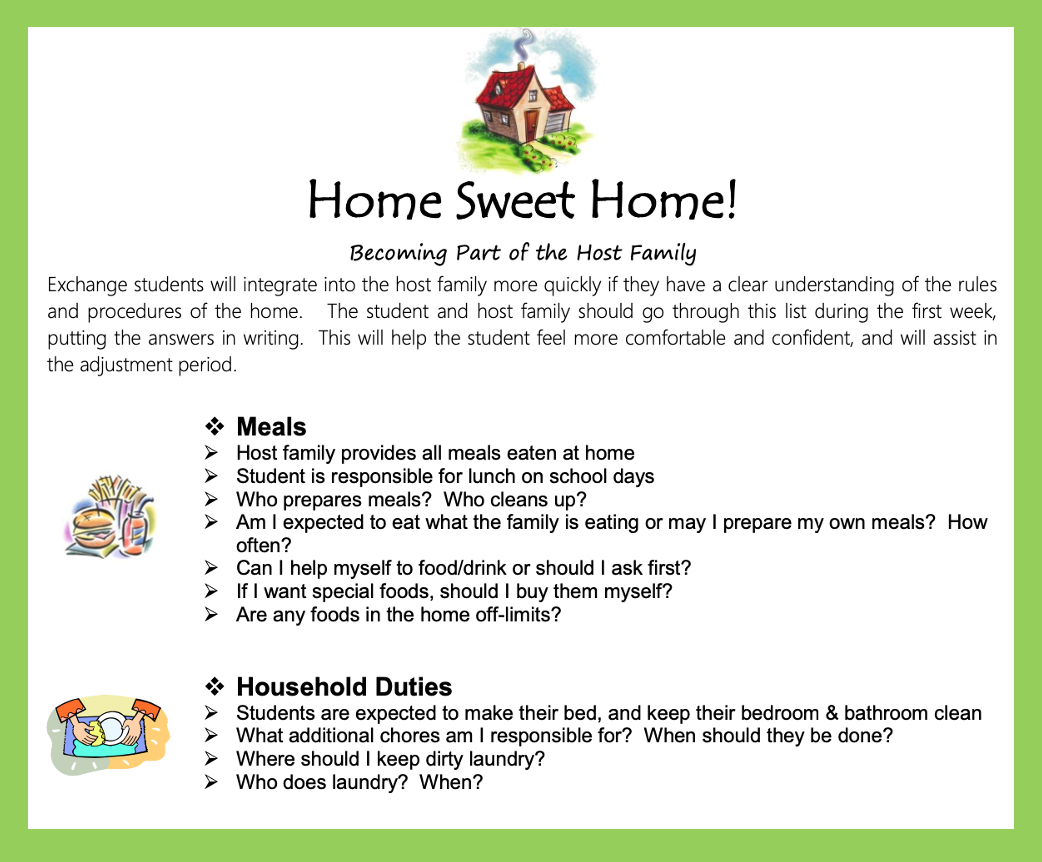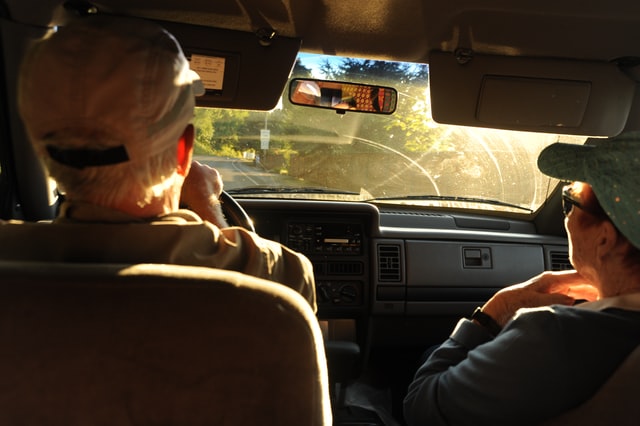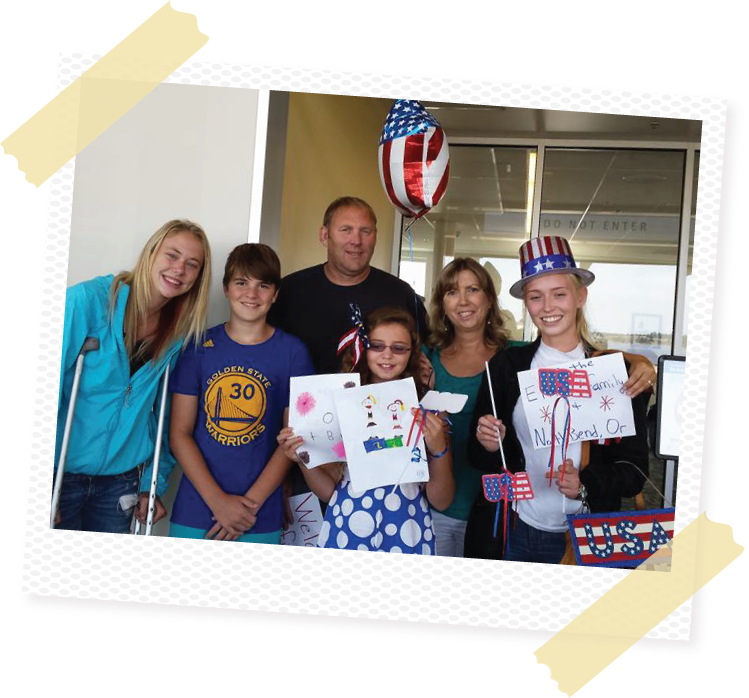The first time we hosted an exchange student, the coordinator gave us a list of topics to discuss with our new student.
- The list covered big things like rules, curfews and expenses.
- It also mapped out “small” things like snacking, meals. bedtimes...
 This is just a glimpse of a guide to talking about everything from friends, curfews, transportation, phone/computer usage and much more. Download this handy ICES Home Sweet Home checklist here.
This is just a glimpse of a guide to talking about everything from friends, curfews, transportation, phone/computer usage and much more. Download this handy ICES Home Sweet Home checklist here.
“What a good idea,” I thought. “We will definitely do this.” And I meant it. But first I wanted to give our student time to settle in and get to know us. Then it was time to sign up for school. And what about meeting the grandparents? And touring our tiny town? It was non-stop.
Then suddenly our first misunderstanding occurred. “Did I hear the television?” I wondered. “In the middle of the day? Before chores or homework?” And I tried hard to remember: “Did I make our house rules crystal clear? I think so…but I’m not sure.”

My first exchange student opened my eyes to expectations I didn't even know I had. How could she meet our expectations if we didn't communicate them clearly?
That was just the beginning. And that’s when I started to see how:
- A happy exchange begins with clear expectations.
- I was aware of many of my family’s expectations.
- I only became aware of other expectations when they weren’t met.
- Communication about expectations was top priority!
Would you like to learn from my mistake? You can download the ICES “Home Sweet Home” list of topics to discuss with your student – today! Then keep reading to see each topic through the lens of youth exchange…
Food & Meals
“I’m so hungry. There’s nothing to eat in this house!” Maria from Spain was calling me from her new host family’s home, somewhere in the USA. She is just one of hundreds of exchange students who asked for my help during the ten years I worked at an agency in the south of Spain. “I looked in the kitchen and there’s no food,” she insisted.

When your student opens your fridge, what does he or she see? A collection of new, different, unfamiliar and even "strange" foods.
As a former exchange student, myself, I knew Maria's problem was not “no food” but different foods (as in “strange” foods), foods that she didn't recognize, understand or know what to do with. She needed a map listing typical foods for breakfast, lunch and dinner.
 In many countries, a sandwich would be classified as a snack, not a meal. Exchange students quickly adapt once they know how to make a hearty, American-style sandwich like the one above.
In many countries, a sandwich would be classified as a snack, not a meal. Exchange students quickly adapt once they know how to make a hearty, American-style sandwich like the one above.
One student from China called his coordinator to say, "I only get one meal a day here!" That was false, but the student wasn't lying... A meal, by his definition, had to be hot. "In the USA, dinner is usually hot, but breakfast and lunch can be cold," his coordinator explained. Problem solved!
It’s so easy to get your student off to a good start! Just take a sheet of paper and create a simple mind-map as you talk. Which meals does your family eat together? When do family members need to “figure out their own food”? Which foods are always available for the taking? Which foods are off-limits? When is it okay to snack?
 You can post the mind map on the fridge. After a week, find out if your student has any questions and then keep filling in that map. You might be surprised to see your family food culture in writing.
You can post the mind map on the fridge. After a week, find out if your student has any questions and then keep filling in that map. You might be surprised to see your family food culture in writing.
- How is it similar or different from other families you know?
- How does it compare to food culture in your student's country?
Housekeeping & Room-keeping
“Mario is not helping enough around the house…” Occasionally I receive emails like this from the USA, urging me to talk to a student about how to pitch in and help more. Back home in Europe, Mario’s family had…a housekeeper. But wait! They weren’t rich and Mario wasn’t lazy. He simply needed a bit of hands-on training…
 Exchange students are eager to fit in, but they need explicit instructions and hands-on training to be successful. Be sure to demonstrate each task and then watch your student try to do it.
Exchange students are eager to fit in, but they need explicit instructions and hands-on training to be successful. Be sure to demonstrate each task and then watch your student try to do it.
In many countries, even middle-class families choose to have less stuff to afford household help. Kids in these countries, rather than helping with chores, are often expected to put in long hours slaving away to get good grades at school.
Like Mario, students from around the world need help understanding how things are done in the USA – and in your home. It only takes a little time to train your student to how do chores around the house:
- Show your student: demonstrate how to do each task.
- Tell your student what to do: be explicit.
- Check that your student understands: ask for a summary.
- Watch the student perform the chore: give feedback.
Teach your student how you like things done and then watch how proud he or she feels when you can praise a job well done.
Transportation
Your student doesn’t know how to “get a ride” …yet!

Most exchange students rely on public transportation back home. Often it is readily available, so there's no need to ever ask for a ride. What does this mean?
- These students don't know how to ask for a ride.
- They feel horribly awkward even thinking about asking...
Imagine how you would feel if someone told you to just "ask someone if you can have dinner at their house..." You might gasp and think, "How could I possibly impose on someone like this?" That is exactly how many exchange students feel about asking for rides.
 Many exchange students are embarrassed to ask for a ride. Talking about transportation is a chance to explain how American teens ask for rides and offer gas money to drivers.
Many exchange students are embarrassed to ask for a ride. Talking about transportation is a chance to explain how American teens ask for rides and offer gas money to drivers.
American teenagers either have a car or they know how to “get a ride” with someone – albeit a trusted someone already approved by their parents. Your student hasn’t got a clue how to do this – at first! But you can fix that fast. Just explain how it works – and don’t forget about gas money as most foreign teens would never think to offer it.
 Some host families can drive their students to school activities, others cannot. Teaching students how to "find a ride" equips students to be more independent.
Some host families can drive their students to school activities, others cannot. Teaching students how to "find a ride" equips students to be more independent.
That said, if you can offer transportation to your student – and you’re happy to do it – you still need to spell out your expectations:
- Are you a stickler for punctuality?
- Which days/times can you provide rides? Where?
- How much advance notice do you need?
- Do you mind if a friend catches a ride?
There are no right or wrong answers to these questions. As the host parent, you are the boss, and your rules are the rules. The key is clarity: crystal clear expectations to guide your student to a successful life with your family.
Friends and Curfews
Your student will be very excited to make new friends in the USA, so it’s best to start talking now – before anyone starts asking permission for anything.
 Explain to your student that in the USA it's normal for a teenager's social life to revolve around school activities - not hanging around city streets or attending unsupervised parties (which might be perfectly normal back home).
Explain to your student that in the USA it's normal for a teenager's social life to revolve around school activities - not hanging around city streets or attending unsupervised parties (which might be perfectly normal back home).
Sami from Finland was so surprised that his host family wanted to know where he was all the time, and he was shocked by his early curfew. He said, "In Finland, my only rule is that I have to be home by the time the morning newspaper hits the porch!" His local coordinator will never forget that story!
These things surprise many foreign teens in the USA:
- Parents want to meet new friends to check them out.
- Teens need to ask permission before making plans.
- Parents need to know where teens are - always.
- Parents must be able to reach teens at all times when they are out.
- Curfews seem so early and are often quite precise and strict.
You can make this subject fun by asking many questions about your student’s social life back home. Find out everything you possibly can. This way you can detect hidden expectations and talk about what’s normal for teenagers in the USA.
The ICES Home Sweet Home handout will make sure you don’t miss any important points.
Host Family Time
Family time is key for bonding with your student, but don’t assume that your student knows what family time looks like in your home. Around the world families spend their time together differently.

Does your family eat together? Maybe you simply enjoy hanging out in the same room while each person connects with their own "content" online. Is there a series you enjoy watching together? Do you bond during long commutes to work and school each day?
 Many students try to cope with the demands of adapting to a new life by spending time alone in their room. Explain the importance of staying in common areas with the family even when nothing special is happening.
Many students try to cope with the demands of adapting to a new life by spending time alone in their room. Explain the importance of staying in common areas with the family even when nothing special is happening.
Most American families frown on students spending most of their time in their room. Host parents often interpret a closed bedroom door as "stay out" or "leave me alone", even if that's not the message a student intends to send.
As a rule of thumb, bedrooms are for sleeping and exchange students need to spend the rest of the day in common areas, with the family. This is a recipe for faster adaptation, a better relationship and a richer exchange for everyone involved.
 In the USA we spend a lot of time in the car, so why not see this as "family time"? Ask your student to park the earbuds and be present. It's a good time to talk - and listen.
In the USA we spend a lot of time in the car, so why not see this as "family time"? Ask your student to park the earbuds and be present. It's a good time to talk - and listen.
Your student needs to know when you want him or her home, with the family, doing whatever it is the family enjoys doing – even if that is nothing. And if family time happens in the car, let your student know if it’s best to park the headphones to be able to participate in the conversation - even if that means just being present and listening.
Phone/Computer Usage
Parents around the world are facing a new challenge: how much technology is enough – or too much? Host parents need to address this issue too!

Don’t be afraid to map out clear rules for phone/computer use:
- What should the schedule be?
- How about daily time limits?
- Do devices really need to be in bedrooms – ever?
- How about bathrooms?
- Can kids keep phones/computers in common areas – always?
- What about rules for mealtimes or when friends/company come over?

You can give your student two great "technology gifts". The first is a list of firm rules. And the second is to lovingly enforce those rules. Help your student be present and live this experience!
Most teenagers are not ready for 24/7 access to phones and computers – especially so far from home. Think of your rules and guidelines as a valuable gift that will help them get more from their program.
Money
Your student is equipped to cover personal expenses including toiletries, clothing, gifts, school-related expenses, eating out and more. Be sure to check the handout for a detailed list to review with your student.

Most students get money from home by using a credit/debit card at an ATM. "Have your student try to get cash before he or she needs it," one experienced coordinator tells her host families. "A high percentage of kids have trouble getting money at first, and it can take some time to figure out the issue. Sometimes the student's parents need to contact their bank and tell them the student is using the card in the States."
 If your student is short on cash, please don't lend money. Call your Local Coordinator for help.
If your student is short on cash, please don't lend money. Call your Local Coordinator for help.
There is a golden “money rule” that every exchange student needs to remember: no borrowing or lending money during the program. This is a proven method for preventing unnecessary misunderstandings. In the case a student loses a credit card or needs quick cash, contact the local coordinator to get help.
Dress Code
If there’s a dress code at your local high school, be sure to let your student know. But don’t stop there. What about your home? Your church? Your community?

Your student is coming from a different country with its own unspoken rules for how to dress. Is it appropriate to wear tight clothing? Short skirts? Low-cut shirts? When a girl is in pyjamas, should she wear a bathrobe around the house?
This is one more chance to explore cultural and personal similarities and differences. If you frame your conversation as a chance to learn and share, everything becomes just a bit more fascinating.
Any Other Business…
As you talk through the Home Sweet Home handout, think about what makes you and your family unique.
- What do you do on holidays?
- How do you celebrate birthdays?
- Are you morning people or night owls?
- Any special habits, rituals or customs to share?
- Any medical conditions your student needs to understand?
- What are your hobbies and other fun activities?
- What drives you crazy?

Have you downloaded the Home Sweet Home checklist yet?
Don't make my mistake! Map out your expectations now, and enjoy every minute of your exchange.
Happy hosting!


